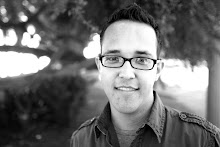I was browsing through blogs today and I ran across an entry that really captured (at least in part) the way I understand theology, people, and our relationship to God. The author likens humans to origami created by someone much greater. Here is an excerpt from the entry "Describing God" from christiancrunch.wordpress.com:
We are that origami-race of men and women who lack ears to hear or brains to understand our Maker. “Oh!” we exclaim. “I have ears!”
Yes, but not the same ears of our Maker. We do not have the mind of our Maker. Everything we hear is with blue-ink ears. Everything we think with our brain was folded and weaved into our being when we were created.
Any conclusion we come up with would be an origami-conclusion; a paper thing readily torn.
And origami-conclusions cannot ever compare to flesh and blood truths.
Origami-conclusions are not the real thing.
They are an effigy. They are symbols of it. They remind us of it.
But they do not describe God. They simply compare Him to us.
I think that analogy is a beautiful way to understand who we are in relation to God, and it puts our attempts at theology in perspective. We will never get it right because our descriptions are confined by our vocabulary and experience. That should not be discouraging; rather, it means that there is infinite room for growth.
